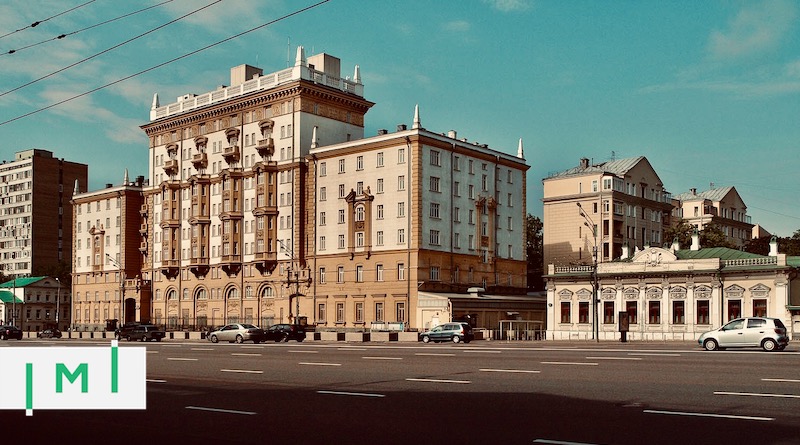US Embassy in Moscow Suspends Visa Services: CBI Lifting the Iron Curtain

Anatoliy’s Analysis
With Anatoliy Lyetayev
Anatoliy Lyetayev covers topics that help industry professionals be more efficient, do more business, and make more money.
In a startling turn of events, the US Embassy in Moscow has announced it will reduce its consular services starting May 12th to include only emergency services to US citizens and limited “life or death” immigrant visas. This declaration comes only a month after the US Consulate General in Vladivostok announced it would suspend visa services starting April 1st, 2021.
The embassy will no longer offer typical immigrant or non-immigrant visa applications for non-diplomats, a decision that will direly affect those with a Russian passport hoping to reach American shores. The reason for this drastic decision was a response to the Russian government’s announcement of its intention to prohibit US Mission Russia from employing foreign nationals in any capacity.
At first glance, this decision would appear as an eye for an eye, knee-jerk reaction but it may prove to be much more than this. We have two scenarios at hand; the first is that this is merely returning the courtesy and is only a short-term political move that will end soon, returning everything back to normal.
The second scenario, however, is much bleaker. The Kremlin’s decision could be a sign of the iron curtain falling once more between the US and Russia, as the new White House does not enjoy the same relationship its predecessor had with the old guard in Moscow. Suppose this is the case, and tensions are brewing. Russians who want to enter the US should prepare themselves for trips to Kyiv, Yerevan, or other neighboring cities with fully functioning US embassies.
The inconvenience does not stop there, however, as Russians now have to deal with different embassy mindsets; the US embassy in Ukraine, for example, refused 45% of all Ukrainian B1 visa applicants. The US embassy in Moscow only rejected 15% of Russian applicants for the same visa. Applying through an embassy that has so high refusal rates that rejecting applications is part of the daily routine can make it challenging for Russians to endure such a process. Thankfully there is a solution if scenario B proves to be true; CBI.
Raising the Curtain
Many regard CBI as the ultimate Plan B, and for good reason, it offers HNWIs worldwide optimal safeguarding of their personal and financial assets. It is in times like these that CBI comes to the forefront of every HNWI’s mind.
The Russian elite, many of whom have investments, assets, or businesses in the US, now find themselves unable to obtain a US visa through the consulate on their own soil and must devise a convoluted plan of action to accomplish what would otherwise have been uncomplicated.
CBI provides them with a multitude of options to ease the burden of getting a visa, as it opens corridors to the rest of the world where investors can apply through an embassy or consulate with fast processing times or lower rejection rates.
Some nationals of CBI granting nations – such as St. Kitts & Nevis and Grenada – can even get a B1 visa valid for ten years instead of the three available to Russians. At the same time, Grenadians can obtain an E2 visa and circumvent the process entirely.
But this is not about convenience; it is about need. Alarm bells may not go off yet, and only time will tell if the relationship between Russia and the US has been strained beyond repair.
The US Department Of State told PIE news that out of the 265 US embassies and consulates worldwide, 123 were either closed, temporarily closed, or only offering emergency services. That is 50% of all US visa application centers worldwide.
The fear is that things could get even worse. If both the US and Russia bring their respective global influences to bear and more countries start playing risk-prone cold-war games, we may be looking at a world more closed than in many, many decades. The thought may seem far-fetched at the moment but what happened this week in Moscow would have appeared highly unlikely just a few years ago.
Because HNWIs have a lot, they have more to lose. The last thing they need is to be at the mercy of governments that let petty issues escalate to hinder their populations significantly. I have said it many times: You never know when a government will suddenly go crazy or get into an argument (or worse) and they tend to do that more often when times are tough.
CBI is the hedge against that.
I am a former human rights lawyer turned founder of global citizenship and residence advisory company Migronis Citizenship
We can choose where to live and do business. I have been living in different countries, such as the USA, Brazil, Portugal. I test countries and evaluate them according to my criteria. Therefore, I know what to offer my clients.
I appreciate the freedom of movement. That is why I help others get it.



